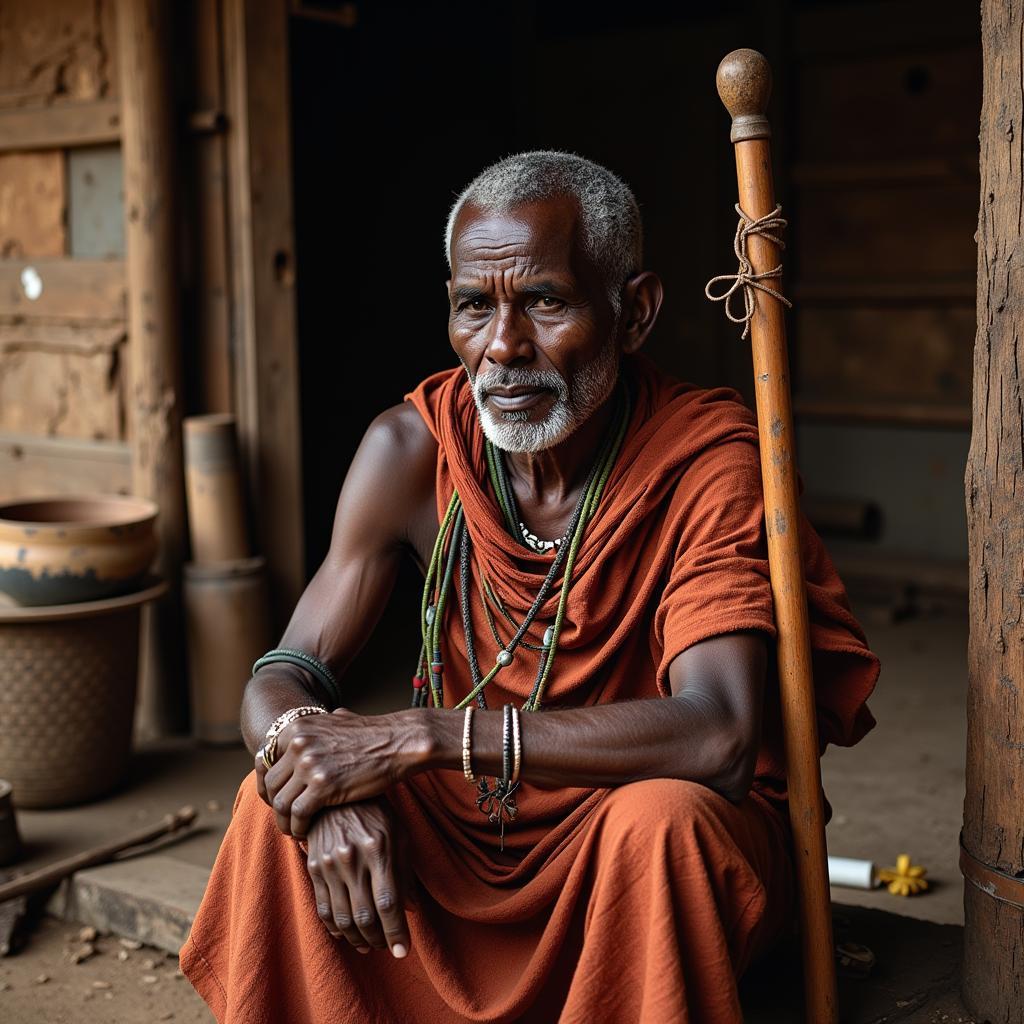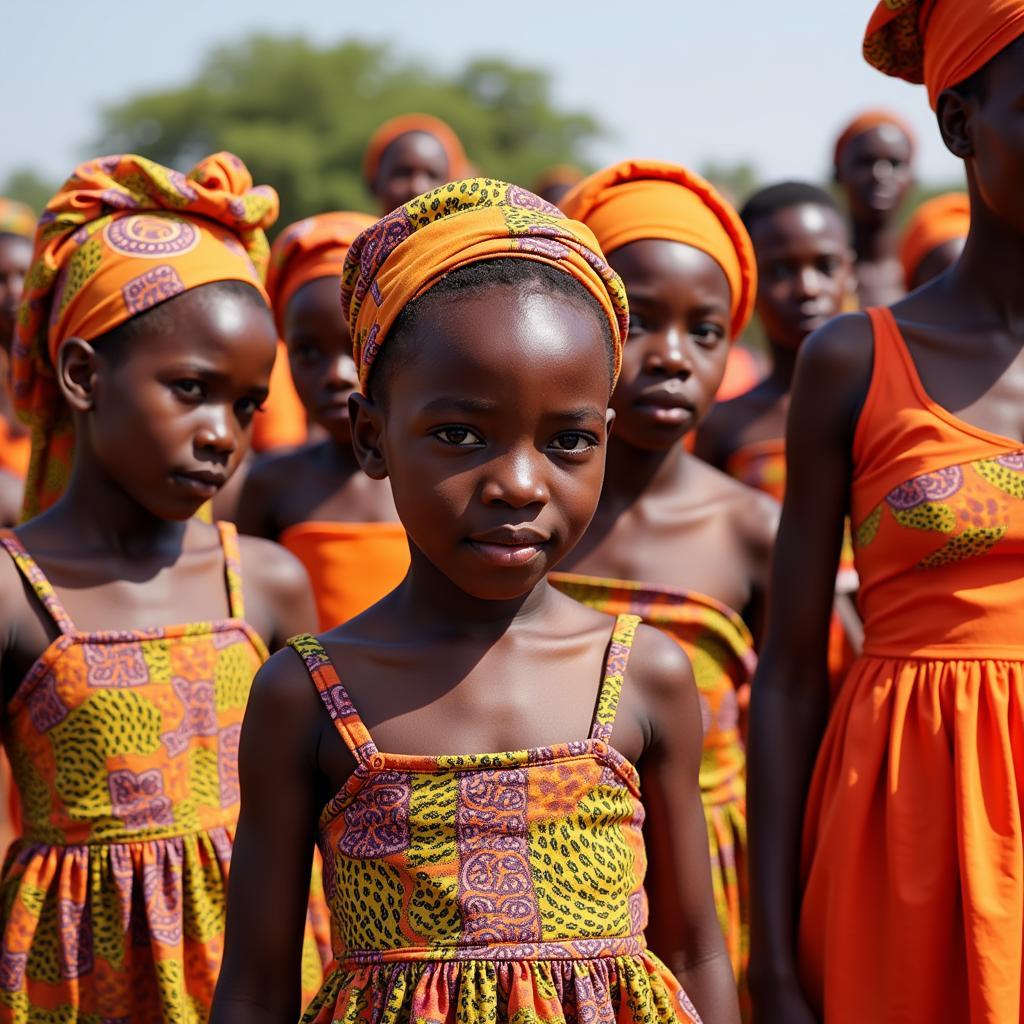Exploring Achebe’s African Trilogy: Things Fall Apart, No Longer at Ease, and Arrow of God
Chinua Achebe’s African Trilogy, comprising Things Fall Apart, No Longer at Ease, and Arrow of God, offers a profound exploration of Nigerian society during a period of immense transformation. These novels, penned between 1958 and 1964, chronicle the clash between traditional Igbo culture and the encroaching forces of British colonialism, revealing the complexities of identity, cultural resilience, and the enduring power of storytelling.
Understanding the Impact of Achebe’s African Trilogy
The Achebe African Trilogy is more than just a collection of stories; it is a window into a world on the cusp of change. Achebe masterfully weaves together narratives that expose the internal conflicts and societal upheavals that accompanied the arrival of colonialism. He challenges the dominant narratives of the time, giving voice to the silenced and offering a nuanced perspective on the human cost of cultural collision. His evocative prose and insightful character development create a lasting impact, prompting readers to question the legacies of colonialism and the enduring struggle for cultural preservation.
Things Fall Apart: The Beginning of the End
Things Fall Apart, the first novel in the achebe african trilogy, introduces Okonkwo, a respected warrior and leader in the Igbo village of Umuofia. Okonkwo’s fierce adherence to tradition and his fear of appearing weak drive his actions, ultimately leading to his tragic downfall. Achebe portrays the intricate social structures, religious beliefs, and cultural practices of the Igbo people with remarkable detail, painting a vivid picture of a society grappling with internal tensions even before the arrival of the British.
No Longer at Ease: Navigating a Changing World
The second installment, No Longer at Ease, follows Okonkwo’s grandson, Obi Okonkwo, as he navigates the complexities of post-colonial Nigeria. Educated in England, Obi returns to his homeland filled with idealistic notions of progress and reform. However, he soon finds himself caught between the expectations of his traditional family and the allure of Western values. Obi’s struggles with corruption, cultural identity, and the pressures of modern life highlight the challenges faced by a generation grappling with the legacy of colonialism.
Arrow of God: The Clash of Faiths and Cultures
Arrow of God delves into the spiritual and cultural conflicts that arise when Ezeulu, the chief priest of Ulu, faces the growing influence of Christianity. Ezeulu’s unwavering commitment to his traditional faith is tested as his community begins to embrace the new religion. This novel explores the intricate relationship between religion, power, and cultural identity, highlighting the complexities of navigating a world in transition.
Why is the Achebe African Trilogy Important?
The achebe african trilogy holds immense literary and historical significance. It offers a powerful critique of colonialism and its impact on African societies, providing a voice to the marginalized and challenging Eurocentric perspectives. Achebe’s masterful storytelling, nuanced character development, and insightful exploration of cultural clashes have solidified the trilogy’s place as a cornerstone of African literature.
“Achebe’s trilogy is a testament to the resilience of the human spirit in the face of overwhelming change. His work continues to resonate with readers worldwide, reminding us of the importance of understanding and appreciating diverse cultural perspectives.” – Dr. Chiamaka Okeke, Professor of African Literature at the University of Lagos.
Frequently Asked Questions about the Achebe African Trilogy
- What is the central theme of the Achebe African Trilogy? The trilogy explores the impact of British colonialism on Igbo society, focusing on the clash between tradition and modernity.
- In what order should I read the books in the trilogy? The recommended reading order is Things Fall Apart, No Longer at Ease, and Arrow of God.
- What is the significance of the title Things Fall Apart? The title reflects the disintegration of traditional Igbo society under the pressures of colonialism.
- Who is the main character in Things Fall Apart? Okonkwo, a respected warrior and leader, is the central character.
- What is the historical context of the trilogy? The novels are set in Nigeria during the late 19th and early 20th centuries, a period of significant social and political upheaval.
- Why is Chinua Achebe considered a significant author? Achebe is recognized as a pioneer of African literature, challenging colonial narratives and giving voice to African perspectives.
- Where can I find more information about Chinua Achebe and his work? Numerous academic resources, literary critiques, and online forums offer in-depth analyses of Achebe’s writings.
 Ezeulu, the chief priest, facing the challenges of change.
Ezeulu, the chief priest, facing the challenges of change.
In conclusion, the achebe african trilogy offers a compelling journey into the heart of a changing world. Through his captivating narratives and insightful characters, Achebe illuminates the complexities of cultural identity, the enduring power of tradition, and the profound impact of colonialism on African societies. These novels continue to resonate with readers today, urging us to examine the past and grapple with the legacies of history.
For further assistance or information regarding African culture and literature, please contact us at +255768904061, email kaka.mag@gmail.com, or visit us at Mbarali DC Mawindi, Kangaga, Tanzania. Our customer service team is available 24/7. You may also want to read more about other African authors on our site. We have a wealth of resources about African Life and culture waiting for you.



